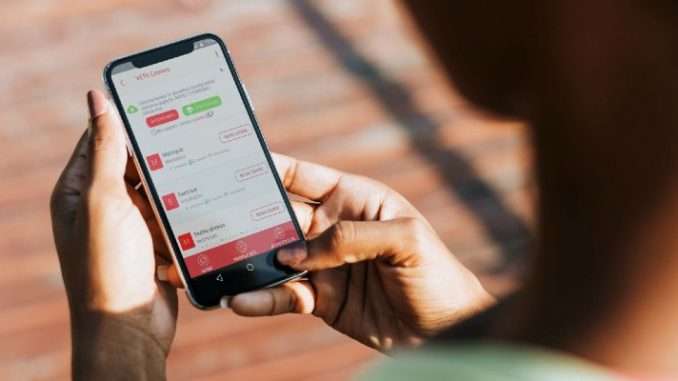
The Nigerian Communications Commission, NCC, on the 20th of January, 2025, notified Nigerians, especially internet users on the review and approval of a 50 per cent tariff hike, laying claim to the cry of telecommunications operators in the country as the reason for the “unavoidable” upward review of data price in the most populous African country.
Despite complains and outcry from Nigerians about the upward review of tariff, NCC backed its action in a circulated press statement released late January, 2025, that in pursuant to its power under Section 108 of the Nigerian Communications Act, 2003, NCA, the commission had every right to regulate and approve tariff rates and charges by telecommunications operators in response to prevailing market conditions.
Prevailing market conditions that proved to be affecting common Nigerians and even the upper class, who had come out publicly to make known their grievances about the poor state of Nigeria’s economy since the implementation of subsidy removal and the commodification of the Naira by the administration of President Bola Tinubu, was not enough reason for NCC to shelve the increment in tariff plans.
9News Nigeria’s Editor, Deji Ogunsola, reports that NCC, said the adjustment, capped at a maximum of 50% of current tariffs, though lower than the over 100% requested by some network operators, will remain within the tariff bands stipulated in the 2013 NCC Cost Study and requests will be reviewed on a case-by-case basis, stating that it was implemented in strict adherence to the recently issued NCC Guidance on Tariff Simplification, 2024.
NCC therefore revealed through its public statement that the tariff rates have remained static since 2013, despite the increasing costs of operation faced by telecom operators, expressing that the approved adjustment is aimed at addressing the significant gap between operational costs and current tariffs while ensuring that the delivery of services to consumers would not be compromised.
To this effect, the shift in tariff price, has ignited widespread concerns, especially among smart mobile users and small business owners who rely on internet services to sustain their day-to-day activities and businesses, as the soaring costs of data seems not only affecting everyday consumers but also threatening the existence of entrepreneurs in sectors where digital connectivity is essential for growth.
According to statistics from a market research firm Omdia, Nigeria currently has the largest mobile market in Africa, with almost 140 million mobile subscriptions at the end of 2024, while the Universal Service Provision Fund, claims 27.91 million Nigerians currently live in areas underserved or completely unserved by telecom services.
Nigeria’s four key telecom operators MTN, which had an estimated 78.1 million mobile users by the end of 2024, Airtel with 52.1 million users, Glo Mobile with 8.6 million users and 9Mobile with 1.1 million users, announced and effected increases in their data prices.
In reaction to the development, MTN Nigeria raised the price of its 15GB data plan by 200 per cent, from N2,000 to N6,000, while Airtel Nigeria adjusted its 8GB plan from N2,000 to N3,000.
In my opinion, even before the increase in data price, Nigerians were unable to feed themselves due to the ripple effect of some hash “Economic Reforms” carried out by President Bola Tinubu’s administration, which saw internet subscriptions fall by 15 per cent in 2024, dropping from 163.83 million in December 2023 to 139.28 million by December 2024.
SOLIDARITY AND INITIAL GRA-GRA
After the announcement of hike in tariff plans and price, there have been various solidarity cries and alignment by some Civil Society Organizations and credible recognised traditional defenders of Nigerians, in regard to the change in price of data plans.
The Nigeria Labour Congress, NLC, was the first to speak out and show solidarity with Nigerians, after declaring a nationwide boycott of MTN, Airtel, and Glo, from 11:00 AM to 2:00 PM daily, starting February 13, 2025.
NLC through its ever dogged leader, Joe Ajaero, publicly condemned the tariff increases, warning that if telecom companies failed to reverse the new rates by the end of February, a total shutdown of their operations would commence on March 1.
WE ALL WAIT FOR MARCH 1 TO ROLL-IN, AND SEE HOW EFFECTIVE THE SHUTDOWN WOULD BE IN REGARDS TO REVERSAL OF THE TARIFF RATE ISSUED BY NCC.
Meanwhile, the Federal Competition and Consumer Protection Commission, FCCPC, while recognising the economic challenges faced by operators, emphasises that consumer interests remain paramount, as it also showed solidarity with Nigerians.
Similarly, the Socio-Economic Rights and Accountability Project, SERAP, has filed a lawsuit against President Bola Tinubu’s administration and the NCC over the tariff increase.
Filed at the High Court in Abuja (Suit No. FHC/ABJ/CS/111/2025), SERAP argues that the increase is arbitrary, unconstitutional and infringes on citizens’ rights to freedom of expression and access to information.
MY HUMBLE SUBMISSION
As telecom companies continue to increase data prices, Nigerians, especially small business owners, face the harsh reality of paying more for less, as my findings shows that since the announcement of the increment, Nigerians have been struggling with bad network services as they pay higher for a failed communication sector.
Stakeholders have also revealed that the lack of investment in infrastructure, slow internet speeds and high costs create challenges for those who depend on digital connectivity for survival.
They further argue that while telecom companies need financial sustainability, the government must ensure that affordability and accessibility remain a priority.
This Piece Was Written By Deji Ogunsola, Reporting For 9News Nigeria, Lagos State.
